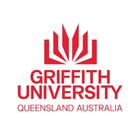Master of International Relations
- Posted by Griffith University
- Home
- Courses
- Griffith University
- Master of International Relations
Master of International Relations
International Relations is the most controversial, dynamic and exciting area of political science. This program suite has a strong practitioner focus and is highly relevant for people working in – or aspiring to work in, government and international organisations. Topics covered include international security and terrorism, human rights, religion and…
Categories
COURSE DESCRIPTION
International Relations is the most controversial, dynamic and exciting area of political science. This program suite has a strong practitioner focus and is highly relevant for people working in – or aspiring to work in, government and international organisations. Topics covered include international security and terrorism, human rights, religion and identity politics, diplomacy and statecraft, political economy and global governance. The masters degree expands on the international relations knowledge you’ll gain in the graduate certificate.
My career opportunities
You will be prepared to work in roles in internationally focused areas of government, including diplomacy, strategic analysis, defence, immigration and trade and investment relations. You could also find work in businesses with overseas profiles, international aid and other non-governmental organisations, and news and media organisations.
REQUIREMENTS
To be eligible for admission to the Coursework stream of the Master of International Relations, a student must:
- hold a related Bachelor degree (or higher) from a recognised University (or another tertiary education institution of equivalent standing) with a minimum GPA of 4.0 (using a 7.0 scale), OR
- hold a Griffith Graduate Certificate in International Relations (or equivalent) with a minimum GPA of 4.0 (using a 7.0 scale). Students with a Griffith Graduate Certificate in International Relations will receive 40 credit points of advanced standing
English language requirements apply to International applicants and other applicants whose previous study was undertaken in a language other than English. The minimum English language requirements for such applicants for entry to this program are as follows:
- A minimum overall band score of 6.5 on IELTS (Academic) with no sub-score of less than 6.0
- OR a minimum score of 575 on TOEFL
- OR an internet-based (iBT) TOEFL score of 79 (no sub-score less than 19)
- OR no score less than 3+ in each skill of the ISLPR (conducted by ISLPR Language Services only)
- OR a minimum overall score of 176 (no score less than 169) on C1 Advanced (formerly Cambridge Certificate in Advanced English) or C2 Proficiency (formerly Cambridge Certificate of Proficiency in English)
- OR an overall score of 58 in the Pearson Test of English (Academic) with no score less than 50.
EDUCATIONAL INSTITUTION
Griffith University is ranked in the top 2% of universities worldwide and strives to create a brighter future for all by prioritising innovation and social impact. We are committed to providing international students with quality education, guidance, and support. With Australia’s most awarded teachers, Griffith University offers a full suite of undergraduate, postgraduate and research degrees in areas including architecture, construction, and planning; business and government; criminology and law; education; engineering, IT and aviation; humanities, languages and social science; medicine, dentistry and health; music and performing arts; science and environment; visual and creative arts.
Griffith University is ranked in the top 2% of universities worldwide and strives to create a brighter future for all by prioritising innovation and social impact. We are committed to providing international students with quality education, guidance, and support.
With Australia’s most awarded teachers, Griffith University offers a full suite of undergraduate, postgraduate and research degrees in areas including architecture, construction, and planning; business and government; criminology and law; education; engineering, IT and aviation; humanities, languages and social science; medicine, dentistry and health; music and performing arts; science and environment; visual and creative arts.




